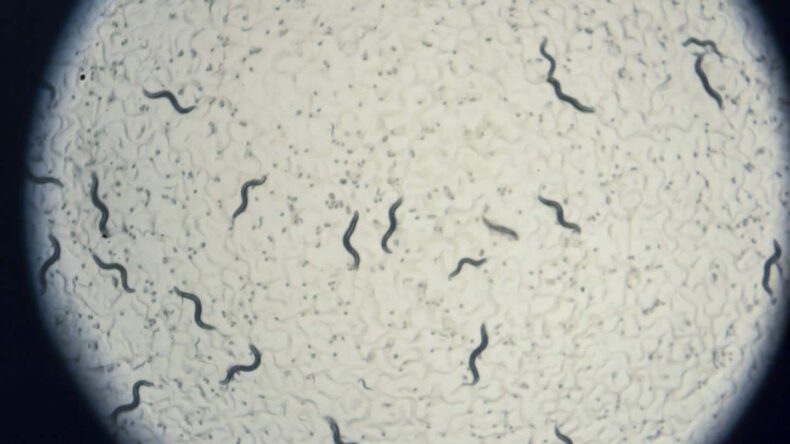Biotech enterprises in Japan come up with a diagnostic test using worms that screen the presence of pancreatic cancer cells in urine samples.

Pancreatic cancers are hard to detect in the early stage and are rapid in growth. It does not have a proper prognosis. The symptoms of this cancer are also not very distinct and varied that causes weight loss or appetite. Thus, to screen these cancer cells much earlier a Japanese biotech firm Hirotsu Bioscience has developed a diagnostic tool comprised of tiny worms.
Worms to Screen Cancer cells
Hirotsu Bioscience has launched the N-Nose Pancreatic test, after years of research. This test uses a mobile sample from the individual which is transferred to the petri-dish with worms of the nematode’s family, specifically the Caenorhabditis elegans (C.elegans).
Caenorhabditis elegans (C.elegans)
It is a type of roundworm that is transparent and about 1 mm in length. These worms swim toward the traces of cancer cells found in the urine.
These worms have very high olfactory power more than dogs and can sense cancer cells towards it. Thus, serving a robust tool for detecting pancreatic cancer in its initial stages.

Long Road of Research By Hirotsu
The Chief Executive of the company, Takaaki Hirotsu, took 28 years to come up with this tool. The tool is being directed in the market to the consumers. The latest version of the device has been molded in a way that the worms swim away from the cancer cell due to the alteration in their gene code. This device is now used for screening Pancreatic cancer and is soon to be implemented for liver, cervical, and breast cancers.
The N-Nose Pancreatic test instrument is now sold for 70000 yen i.e., 505$, which is costlier than the rest of the diagnostic tests in the market. However, it is said that once the company gains brand visibility and scales its manufacture from all the marketing ads run on TV the price might go down. The device is now handy in Japan and will be available in the US market in 2024.
In the initial test group done in Jan 2020 – 5% to 6% were found to have the risk of pancreatic cancer, which helped them with detailed analysis and treatment. Also, some researchers in Tokyo are concerned that the false positives might alarm the public. Hirotsu sum-up may be a cool test with worms but working with these tiny creatures is not so.













